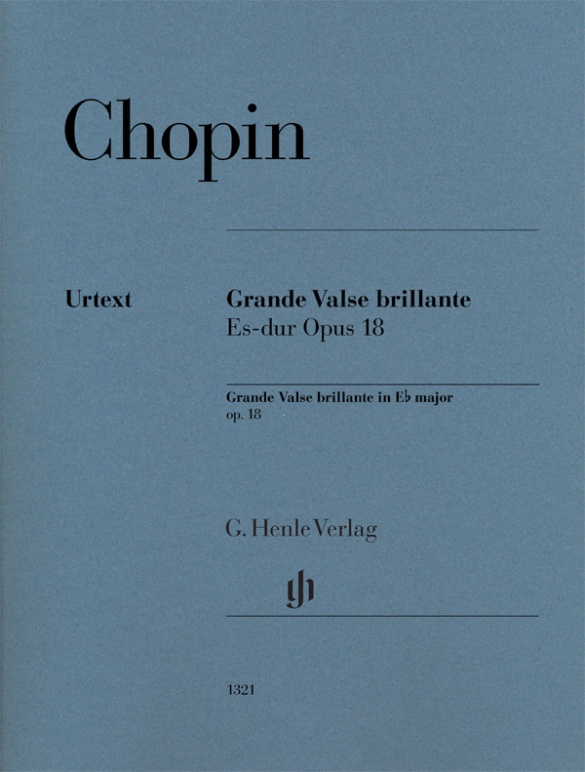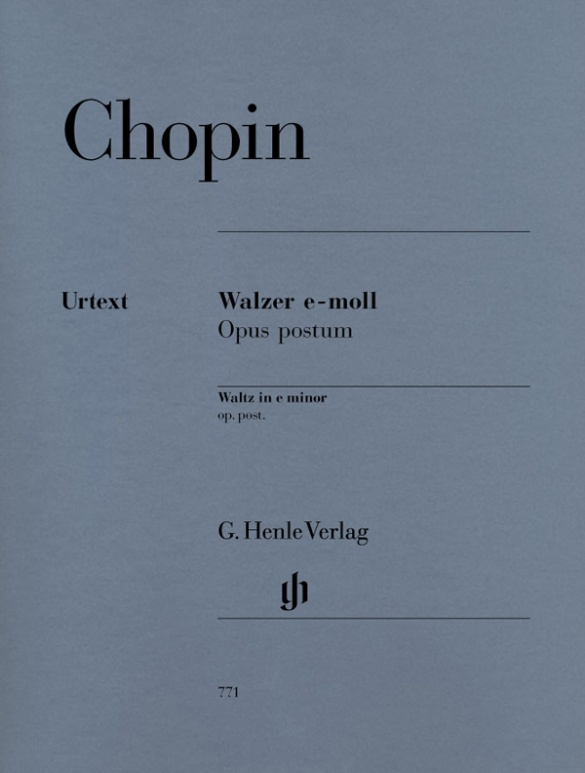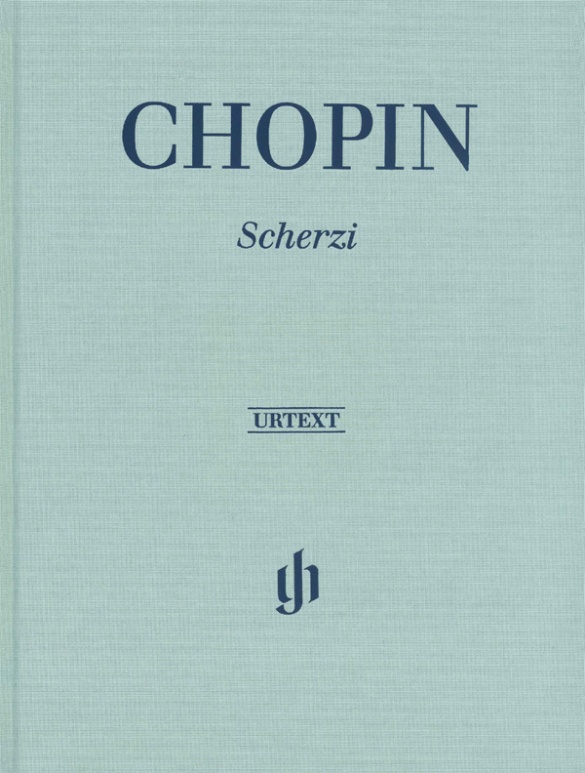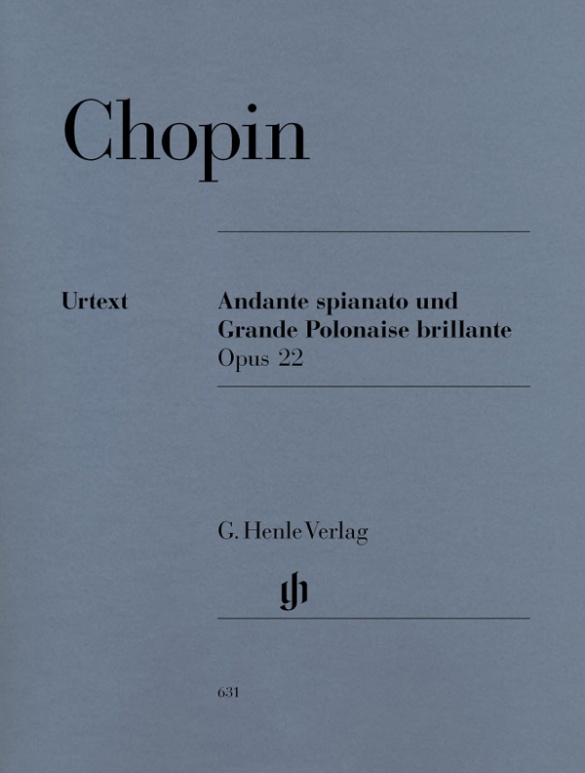

Frédéric Chopin
Andante spianato and Grande Polonaise brillante E flat major op. 22
This rousing Polonaise, which is preceded by a nocturne-like Andante, was originally a work for piano and orchestra. It was written at the same time as Chopin’s two piano concertos in e minor and f minor, and breathes the same fresh, youthful spirit. Since the orchestral part is subordinate and fulfills only an accompanying function, the Polonaise lends itself brilliantly to performance as a solo piano piece, and indeed is almost always performed as such in today’s concert halls. In this spirit – and following the first editions – our Urtext edition is laid out not as a piano reduction (with two piano systems), but contains only the solo part; at those few passages where the solo piano rests, the orchestral accompaniment is reproduced in small print.
Content/Details
About the Composer
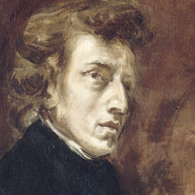
Frédéric Chopin
Pianist and composer. His work is concentrated around piano music that enjoys extraordinary popularity and has become an integral part of the concert repertoire. His music influenced subsequent generations in France (Franck, Saint-Saëns, Fauré, Debussy) as well as Smetana, Dvořák, Balakirev, Grieg, Albéniz.
| 1810 | Born in Żelazowa Wola near Warsaw on March 1. First compositions at age seven, his first public performance at eight. |
| 1822 | Private instruction in composition. |
| 1825 | Rondo in C minor, Op. 1, his first published work. |
| 1826–29 | Studies at the Institute of Music in Warsaw. |
| 1829 | “Fantaisie sur des airs nationaux polonaise” in A major, Op. 13; Piano Trio in G minor, Op. 8. Travels to Vienna, where he gives two concerts of his compositions and improvisations. |
| 1829–33 and 1835–37 | Etudes, Opp. 10 and 25 -- a new type of virtuosic etude that also makes aesthetic demands. |
| 1830 | Premieres in Warsaw of his two piano concerti, Op. 21 in F minor and Op. 11 in E minor. |
| 1831 | Unable to return to Warsaw due to the Polish uprising, he goes to Paris, where he will remain until the end of his life. |
| 1832 | Debut concert in Paris to great acclaim. |
| 1835/38 | “Trois valses brillantes,” Op. 34. |
| 1836/39 | “24 Preludes,” Op. 28, in a cyclic succession: compactly-designed short pieces. |
| 1835/39 | Piano Sonata in B-flat minor, Op. 35, with the funeral march. |
| 1842/43 | Ballade No. 4 in F minor, Op. 52; “Grande Polonaise brillante” in A-flat major, Op. 53; Scherzo No. 4 in E major, Op. 54. |
| 1844 | Piano Sonata in B minor, Op. 58 |
| 1849 | Completion of the mazurkas in G minor and F minor. Death in Paris on October 17. |
About the Authors
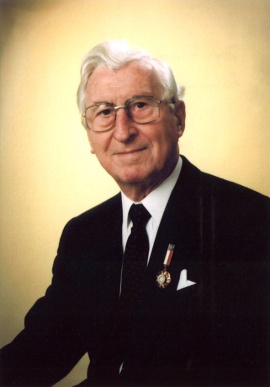
Ewald Zimmermann (Editor)
Dr. Ewald Zimmermann (1910–1998) studied the piano (Privatmusiklehrer-Examen with Eduard Erdmann) and musicology, doing a doctorate in the latter following his time as a soldier in World War II and subsequent time as a prisoner of war in Russia. In 1953 he became the first editor in the history of G. Henle Publishers, where he worked for 22 years alongside the founder of the publishing house, Günter Henle, in Duisburg, actively and deftly supporting the young company’s initial steps. Zimmermann was in charge of almost all of the Urtext editions that were produced in his time, himself editing several volumes, including all of Frédéric Chopin’s works for piano. Under his direction, the first scholarly catalogue of Chopin’s musical works of the time (Krystyna Kobylańska) was produced, issued by G. Henle publishers in 1980.
In 1991 Zimmermann was honoured for his efforts with the Chopin Medal by the Chopin Society in Warsaw, and shortly afterwards received the order “Mérite en faveur de la culture polonaise” from the Polish government. Even after he had retired in 1975, during which time he devoted himself more intensively to playing the piano, he still retained close ties with the publishing house, remained in close contact with his successors and continued editing.

Klaus Schilde (Fingering)
Prof. Klaus Schilde, born in 1926, spent his childhood in Dresden. There he was greatly influenced by Walter Engel, who taught him the piano (Kodaly method), composition and violin. From 1946–1948 he studied at the music conservatory in Leipzig with Hugo Steurer. After moving to the west in 1952 he studied with Walter Gieseking and Edwin Fischer, as well as with Marguerite Long, Lucette Descaves and Nadia Boulanger in Paris.
Schilde won numerous prizes. From 1947 onwards he gave concerts as a soloist and chamber musician on almost every single continent with renowned orchestras. He taught at the music conservatories in East Berlin Detmold, West Berlin, Munich, Tokyo (Geidai) and Weimar. From 1988–1991 he was President of the Staatliche Hochschule für Musik und Theater in Munich, where he also taught for decades as a professor. There are numerous radio and television broadcasts with Klaus Schilde as well as CD recordings. Schilde has contributed fingerings to almost 100 Henle Urtext editions.
Prof. Klaus Schilde passed away on 10 December, 2020.
Product Safety Informations (GPSR)

G. Henle Verlag
Here you can find the information about the manufacturer of the product.G. Henle Verlag e.K.
Forstenrieder Allee 122
81476 München
Germany
info@henle.de
www.henle.com
Druckbild, Vorwort, Kritischer Apparat und Fingersatz sind -- wie bei Henle üblich -- in hervorragender Verfassung und dem Interpreten eine echte Hilfe.
Piano News推荐
autogenerated_cross_selling
本书目其他版本
本书目其他版本


